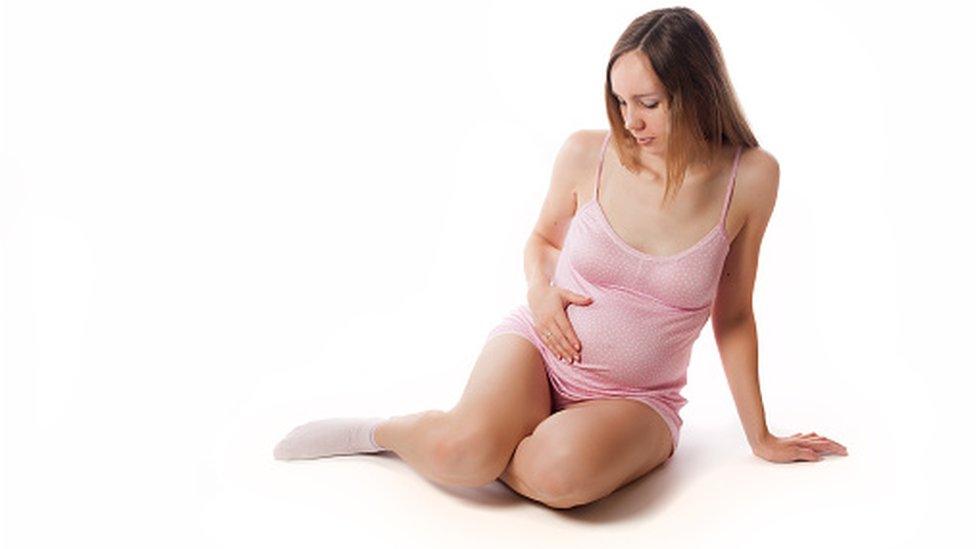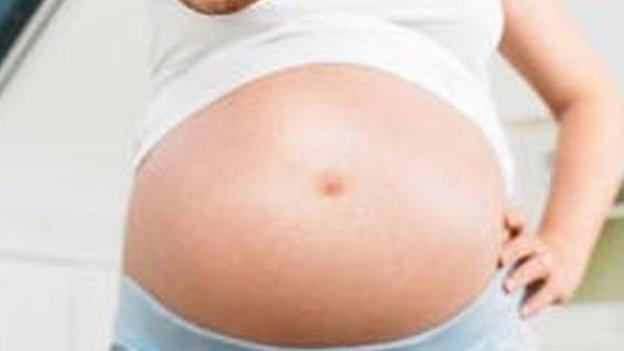Pregnant teenagers 'need more contraception support'
- Published

Nearly one in four teenagers having an abortion in England and Wales has been pregnant at least once before, a study in the Journal of Adolescent Health has found.
The researchers said more support and advice on contraception should be offered to this group.
Sexual health charity FPA said educating teenagers about sex and relationships at school was crucial.
It rejected the idea that abortion was used as a method of contraception.
University of East Anglia researchers looked at abortion data from the Office of National Statistics and the Department of Health.
They found that the number of abortions among this age group has been decreasing since 2007, with the current rate at 17 per 1,000 teenagers.
But over the past 20 years the proportion of teenagers having an abortion who had already had a previous pregnancy has risen by 33%.
In order to keep the current teenage pregnancy rate among 15 to 19-year-olds at the current record low, they said more time should be spent on educating teenagers who become pregnant how to avoid future unplanned pregnancies.
'High-risk group'
Lisa McDaid, lead researcher from UEA's Norwich Medical School, said young women who become pregnant can be considered "a high-risk group for subsequent, unplanned, mistimed or unwanted pregnancies".
She said: "All organisations will need to work together so that teenagers have an effective contraceptive plan in place that meets their needs after a pregnancy, along with receiving ongoing support to encourage uptake and continuation and improved access to emergency contraception."
Natika Halil, chief executive of sexual health charity FPA, said there was a strong link between teenage pregnancy and deprivation which needed attention.
She said sex education (SRE) in schools was an important way of getting information to this group.
"SRE delays the age at which young people first have sex and, beyond the mechanics of reproduction and contraception - which should not be overlooked - it teaches about wider issues of consent and negotiation, self-esteem and respect, how to recognise a healthy or unhealthy relationship, how to say no and when to say yes."
But she said ongoing support also had to be in place.
"Equally important is that when a young person has had an abortion, they are given appropriate aftercare, not least in advice around their contraceptive options."
She added: "In our experience abortion is not something women or young people use as a method of contraception and it is too simplistic to overlook everything that leads up to a point when a young woman needs an abortion."
- Published25 August 2015
